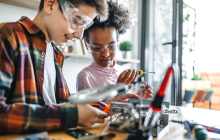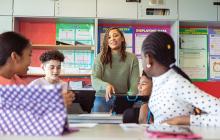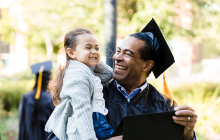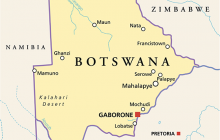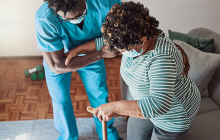Policymakers, practitioners, and consumers often search for the most up-to-date knowledge to improve lives. Effective knowledge translation requires expertise that begins with refining the questions that specific audiences need answered, and finding relevant research studies that answer those questions. The process then moves to translating evidence into user-friendly products customized for specific audiences, and providing technical support to apply the information to make individual, practitioner, and systems change.
AIR begins this process with stakeholder engagement (providers and consumers), using formative research to learn about the questions they want answered and the best way to engage, inform, and reach users. AIR then conducts systematic literature reviews and meta-analyses to find relevant research studies and other literature that answer their questions.
From a synthesis of the findings, our knowledge transfer and communication experts create online and print products including social media that communicate the results and disseminate them through conferences and trainings, videos, websites, social media, and virtual events to specific audiences.
AIR incorporates strategies including cultural and linguistic competence, varied literacy levels, and adaptive formats for those with disabilities, to reach specific audiences. Training, technical assistance, and coaching—either online or in person—often support users in applying knowledge to make desired changes.

